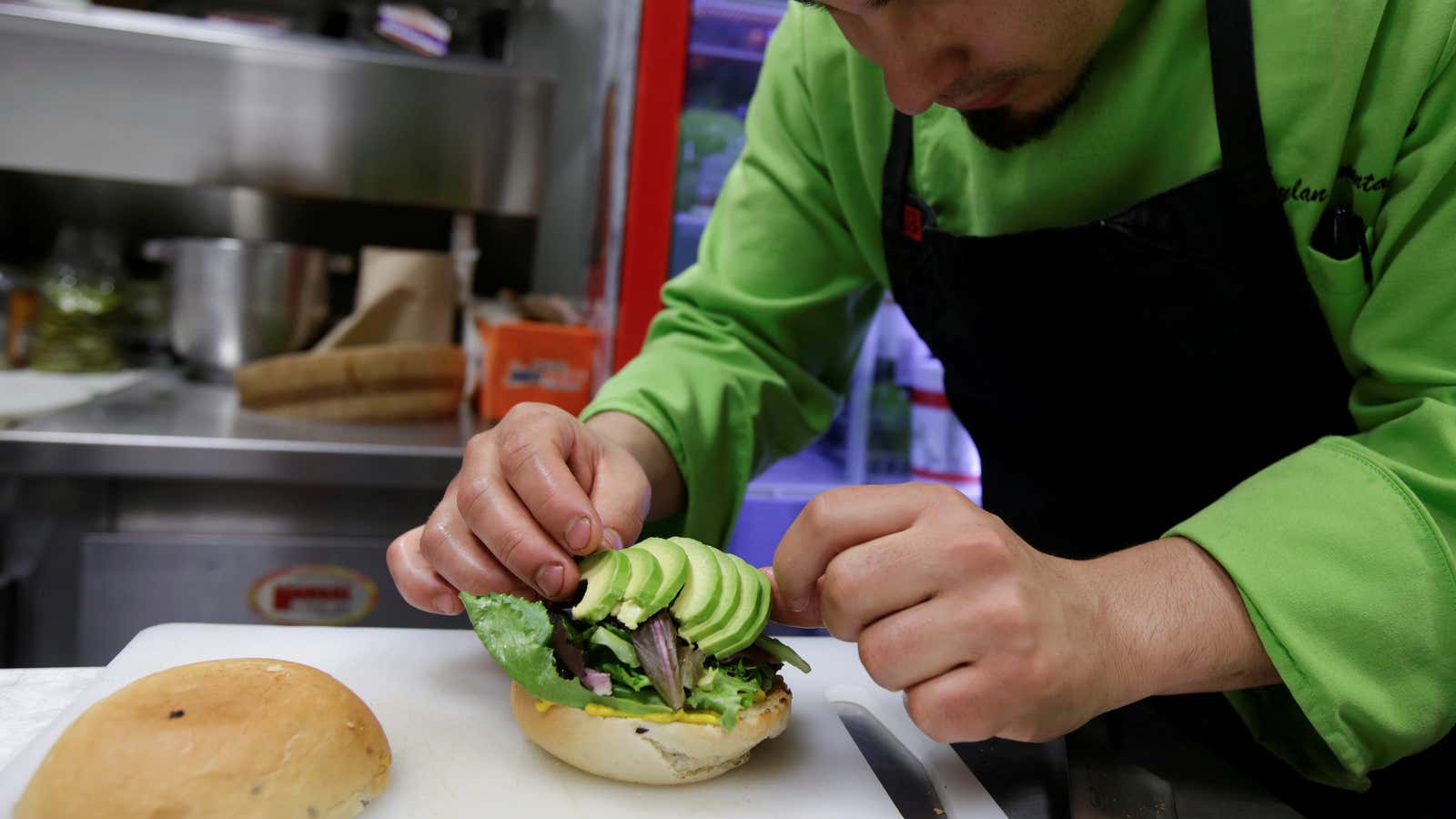In 2022 the typical English consumer is more likely to be a vegetarian who works from home than in years past, at least according to the Office for National Statistics (ONS).
Each year the ONS updates its basket of goods, a collection of about 700 commonly purchased items ranging from donuts to dish soap that it uses to track inflation. Those changes are a snapshot of the tastes and habits of English consumers. The items that are added or subtracted are “based on long term trends,” a spokesperson from the ONS said.
Changing eating habits
Canned beans, chickpeas, and lentils along with meat-free sausages have entered the basket of goods. The additions reflect the rise of vegetarian and vegan diets, driven by both greater health and environmental concerns, according to the ONS.
Vegans are about 2% to 3% of the population in England and vegetarians about 5% to 7%, according to a survey by YouGov, a data analytics firm. The majority of Britain’s vegans are fairly new to the lifestyle, with 63% having ditched animal products only in the last five years. For vegetarians, the stat is 46%. Fast-food chains like McDonald’s and Burger King have launched vegan burgers and nuggets in recent years. There’s also been a growing number of people who may not identify as vegan or vegetarian, but who participate in campaigns like Veganuary, which encourages people to go vegan for the month of January, or Meatless Mondays.
Working from home is changing eating habits
Single donuts have been tossed out of the basket due to declining sales, which is connected to the rise of people working from home, according to the ONS. Stopping to pick up a donut and coffee at a coffee shop before heading into the office is a scenario more likely during pre-pandemic times. Likewise men’s suits are out, and sport bras are in, reflecting more casual work from home attire. Multipack donuts are still part of the basket of goods.
Changing consumer habits during an era of high inflation
Inflation is at a three-decade high, and food prices are no exception. Although the ONS decided what to remove and add to the basket in the autumn of 2020, before prices had risen to where they are now, the addition of canned beans and pulses may also be a reflection of budget-minded shoppers looking to trim food bills. Jack Monroe, a food writer and advocate for people living in poverty, has long extolled the pantry power of canned beans.
🎧 For more intel on changing eating habits, listen to the Quartz Obsession podcast episode on fish sticks. Or subscribe via: Apple Podcasts | Spotify | Google | Stitcher.
Monroe though, has also criticized the ONS basket for being a blunt tool that doesn’t take the poorest shoppers into account. “Woke up this morning to the radio talking about the cost of living rising a further 5%. It infuriates me the index that they use for this calculation, which grossly underestimates the real cost of inflation as it happens to people with the least,” she tweeted on Jan. 19. In response, the ONS told the BBC that is it has “radical new plans” to change the way it tracks prices changes.
